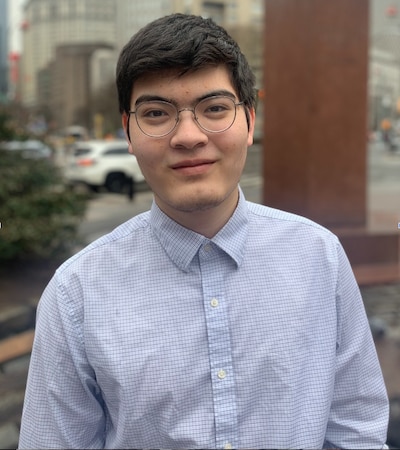I lived the first 10 years of my life in Shanghai. From a young age, there was an emphasis on the gaokao, China’s nine-hour, multi-day college entrance exam. It was such a big deal that I can remember parents talking about preparing their children for the test while I was in the third grade.
When I moved to America and started middle school in New York, standardized testing took on a different form: state tests. During state test week, there was always a tangible aura of stress at school. I wondered about the purpose of these tests, which seemed to promote rote memorization.

In high school, students spend years studying for their end-of-course Regents exams, which, for most New York public school students, are necessary for graduation. But a rich and meaningful learning experience is possible without these often-dreaded exams.
I know this because I attend East Side Community High School, a consortium school that is one of 38 New York public schools that are exempt from all Regents exams except one (the English exam). Instead of taking state exit exams in other subjects, students at my school prepare “exhibitions,” a series of writing and oral projects that culminate in extensive research papers and creative projects. (For decades, students in New York state have been required to pass Regents exams to get their high school diploma, though a state commission is now considering whether to eliminate them as a graduation requirement.)
I wanted to attend a high school that prioritizes student life, learning, and extracurricular pursuits over standardized testing.
After middle school, attending a consortium school held a huge appeal for me. I wanted to attend a high school that prioritizes student life, learning, and extracurricular pursuits over standardized testing, and my high school years have been incredibly rewarding.
In biology, for example, I took what I learned in class and combined it with theories of game design to create a fun and engaging DNA replication-inspired game using UNO cards. In the process, I learned many things beyond the scope of a high school biology class. My research had me studying mitosis and meiosis, amino acid transport, and protein synthesis in-depth. I wasn’t regurgitating information; I was applying my knowledge. And by the time I handed in my assignment, I felt like an expert on DNA replication.
Although every student was required to conduct their own written explanation, we were encouraged to work with classmates to create the game. In my group, we delegated responsibilities, and everyone seemed to value the methods and manners others brought to the project.
Without the pressure to memorize definitions, facts, and timelines for the Regents exams, my teachers have more creative liberty. In our U.S. History class, we got to explore African American history in depth, without cutting our conversations short in the name of moving through the content. We dedicated time to reading and analyzing books by Frederick Douglass and Harriet Jacobs — works that exemplify Black resistance and joy.
And in Algebra II, we wrote a research paper with statistics on the connection between workplace regulation and consumer satisfaction. We also explored ways to incentivize major shoe companies to pay their South American workers a living wage.
Proponents of standardized testing say eliminating these assessments would lower high school standards. In reality, consortium schools raise the bar. Students at my school hone sophisticated research and writing skills and contribute to the community in profound ways. As a New York state commission mulls eliminating the Regents as a graduation requirement, I want them to know that my peers are some of the most brilliant, responsible, and upstanding people I have ever met. Our high school experience has taught us to be free and independent thinkers. We are more than prepared for college and beyond. I wish all New York City public school students had the opportunities that we do.
Alexander Calafiura is a junior at East Side Community High School in New York City. In his spare time, he enjoys folding origami, reading classic literature, and having a nice cup of coffee on a rainy day.


